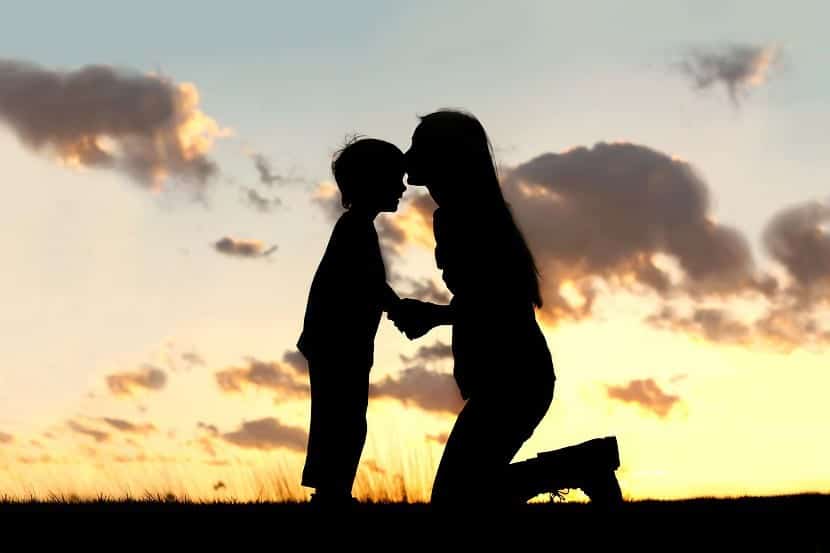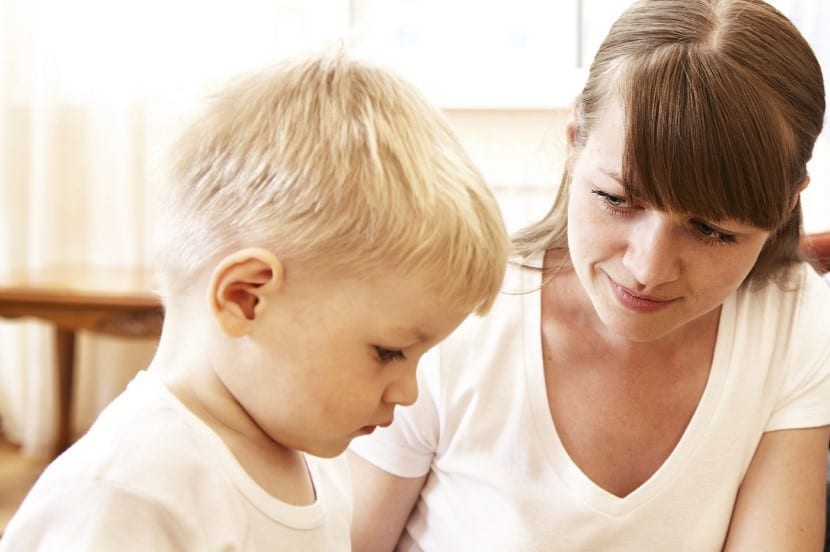
When you lose a loved one the feeling that exists inside is terrible and very difficult to explain in words. In many cases, a tragic and unexpected loss can be something that can make you walk along with the pain for many years. It can be the death of a father, a mother, a brother / sister, a loved one, a friend ... but When it happens, the way you feel changes and your memory will always be with you.
With the passage of time and once the grief is over, the pain turns into nostalgia and although it hurts like a pang in the heart we always want to remember him, although sadness often replaces memories. During this time that the acceptance process lasts, which goes from the loss to the moment in which what has happened is accepted, it is necessary to talk about internal feelings.
There are people (and children) who when immersed in great pain due to the death of a loved one do not always know how to talk about this loss, and those who are present do not always find the words to comfort the person in need. But this should not be so it is necessary to learn from a young age to share feelings and ask for help when we need to be comforted. Showing compassion and understanding in times of need is also something that should be learned from a young age, we all have the capacity for empathy enough to be able to comfort a person in need.

Talking about death can be as difficult or more difficult for children as it is for adults. In fact, some parents may do their best to avoid talking about this for as long as possible. They do this out of a misguided attempt to protect their children from the sadness and great pain of the loss of a loved one. But the reality is that if it is not talked about, children will not be able to process it. Death is part of life and it is a good idea for children to begin to understand death with small "doses" of information from the time they are young. But how do you talk about death with children so that it doesn't sound too scary to them?
Find the right times to do it
It is not appropriate that you talk about death every day and at any time, it is necessary that you find the opportune moments of teaching. If you talk about death to your children in small doses from time to time, it will be easier to talk about a loss when it happens to someone you love. Faded flowers, dead insects, or other examples can be an example of how death is part of life. The old people you know also show that aging is natural, but being old does not mean that you do not live. Children must cope with these feelings about life and death in order to learn to be resilient.

Answer their questions
Some children are satisfied with what they are told, but other children may ask a lot of questions in order to understand. If your child has questions about what happened and asks you the same questions over and over again, feel free to answer them, even if he asks the same questions over and over. But you may not have the answer to all their questions, in this case it is good to admit that you do not know the answer to the question and that when you do, you will tell them. The processing of death can be very difficult for young children, so it is normal for them to ask questions to try to understand it a little better. On many occasions they can worry excessively thinking that perhaps one day their parents or siblings will also die. It is important to talk about death and answer their questions taking into account the child's level of maturity.
Be honest about what you say
Children are often confused about what death is because they have confusing information. If you tell your children things like: "Grandma went to sleep last night and woke up in heaven." These types of phrases can make children feel real terror when going to sleep because they may think the same thing will happen to them. On the other hand, if you say something like: "Grandma died last night," you will tell your child exactly what happened.
As wellIf a loved one has been ill for a long time, it is a good idea to talk about the specific illness that caused their death. saying things like, "Grandma was sick and eventually died from it." A young child may think that any disease causes death, so he needs the assurance that what happened to his grandmother was something specific because of a specific disease.

Respect their fears
Death can be a scary thing for young children (but also for adults). Some children feel great anxiety if they have to attend a funeral, especially if the person is present in body. It is necessary to identify children's feelings and talk about their fears to recognize what it is that really scares them. Never force a child to attend a funeral, sometimes a small private farewell is better so that young children can say goodbye to a person who was important to them. You can think of doing something together to honor that person such as writing him a letter or planting a tree in his name, so his memory will remain strong in your hearts.
Here are some ways you can talk about death with children so that it doesn't sound so scary to them. It is necessary to try to normalize the fact of death in our lives so that afterwards the blow is not so hard neither for children nor for adults. Although you will always need to go through the grieving process to finally accept the loss of a loved one.